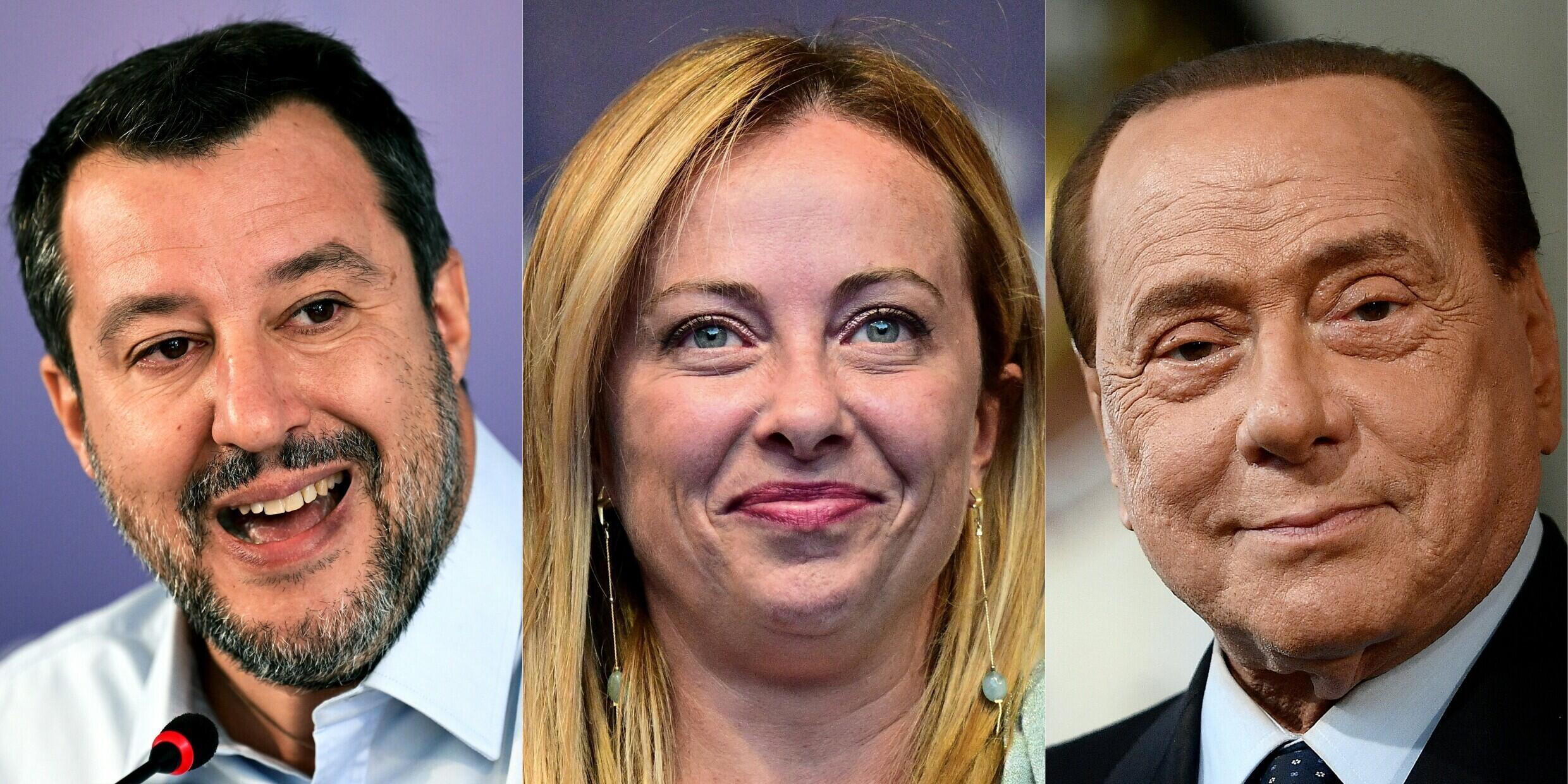After the Brothers of Italy party won the legislative elections last September, the far-right and leader of the movement, Giorgia Meloni, was summoned on October 21 by President Sergio Mattarella to form the new government. Meloni, at the head of a coalition that includes the Forza Italia and La Liga parties, was appointed as prime minister and is preparing to establish the most right-wing administration in the country since World War II.
Giorgia Meloni, the woman with whom the extreme right returns to power in Italy, exactly a century after Benito Mussolini.
This 45-year-old Roman woman whose political party, the far-right Brothers of Italy, won a solid victory in the legislative elections on September 25, will be sworn in as Prime Minister upon accepting the assignment from President Sergio Mattarella to form the country’s new Administration .
The information was confirmed this Thursday, October 21, by the Quirinal presidential palace, shortly after Meloni announced that she and her coalition partners unanimously asked the head of state to give her the leadership to form the new cabinet.
“We are ready to form a government as quickly as possible (…) We have indicated that I am the person who should receive the mandate to form the new government,” Meloni told the press after an initial ten-minute meeting between her, her partners politicians and the president.
The new government team is scheduled to take the oath this Saturday, October 22, when Italy will see Meloni confirmed as the first female minister in its history and the start of the first government with neo-fascist roots in the country since World War II.
Although Brothers of Italy won the last elections, Meloni needs his two allied parties to achieve a solid majority in the legislature.
The political leader is facing a coalition that includes Forza Italia, of the controversial former Prime Minister Silvio Berlusconi, and La Liga, of the former Minister of the Interior, Matteo Salvini, known for his strict immigration policy that earned him disputes with the judges of his nation and organizations of human rights.
Although the members of the alliance present political and ideological similarities, the process to form the new Administration has exposed internal tensions.
The tensions between the most right-wing Italian coalition in decades
This week, Giorgia Meloni had to face the controversial statements of her partner Silvio Berlusconi, after in a meeting with his legislators, the former government leader expressed his sympathy for the motivation of President Vladimir Putin to invade Ukraine.
In that conversation, which was recorded and leaked to the Italian news agency ‘LaPresse’, Berlusconi made it clear that he resumed his contacts with Putin, blamed kyiv for the war and boasted that the Russian president sent him bottles of vodka for his 86th birthday, last month.
Meloni, a supporter of NATO and of the West’s support for the invaded nation, was quickly forced to clarify that Italy “is a full part and with its head held high” both in the European Union and in the political-military alliance, led by USA.
In response to Berlusconi’s comments, which were also disparaging of Ukrainian President Volodymyr Zelensky, the leader of the Brothers of Italy insisted that anyone joining her administration must be solidly in sync with the West to oppose Putin’s war. Furthermore, she said that if it meant that her government could not be formed, she was willing to take the risk.

But Berlusconi is not the only coalition leader to pose challenges on this matter within the coalition. Salvini, leader of La Liga, has also at times questioned harsh Western sanctions against Moscow’s economy.
Likewise, Lorenzo Fontana, a legislator from that political movement and elected last week as president of the Lower Chamber of Deputies, has publicly expressed his doubts about the continuation of these measures.
The political and economic challenges of the new Government
The positions of Berlusconi and Salvini are also challenging because the coming to power of the new coalition, with Eurosceptic leanings, is closely watched by Italy’s allies in the European Union.
Although Meloni is considered a Eurosceptic, although she moderated her speech during the campaign, she gave up trying to push Italy out of the euro zone.
What will be Italy’s 68th government since 1946 faces daunting challenges, including a looming recession and rising energy bills.
Italian growth will depend in part on the nearly 200 billion euros of grants and loans agreed by the EU under its post-pandemic recovery fund.
In addition, the Italian press has echoed the multiple questions among the leaders of the three political parties in the coalition about the distribution of seats in Parliament and in the future Government, especially with the apparent attempts by Berlusconi to undermine the authority of Meloni.
Italy’s three-time prime minister has been irritated by the electoral victory of Meloni’s party. The Brothers of Italy got 26%, while their movement, Forza Italia, and La Liga got just over 8% each.
The 86-year-old politician recently mocked her as “arrogant” in written comments, after Meloni refused to appoint a lawmaker who is one of the media mogul’s closest advisers as minister.
Giorgia Meloni declares herself a Christian and a conservative hostile to LGBTIQ+ rights and her motto is ‘God, country, family’. However, she promised that she will not touch the law that authorizes abortion.
The new coalition replaces a national unity government led by former European Central Bank chief Mario Draghi, who attended a European Union summit in Brussels on Friday for one of his last acts as prime minister.
With Reuters and AP








![[Img #74675]](https://thelatestnews.world/wp-content/uploads/2024/12/They-discover-a-new-class-of-X-ray-sources-in-the-150x150.jpg)


